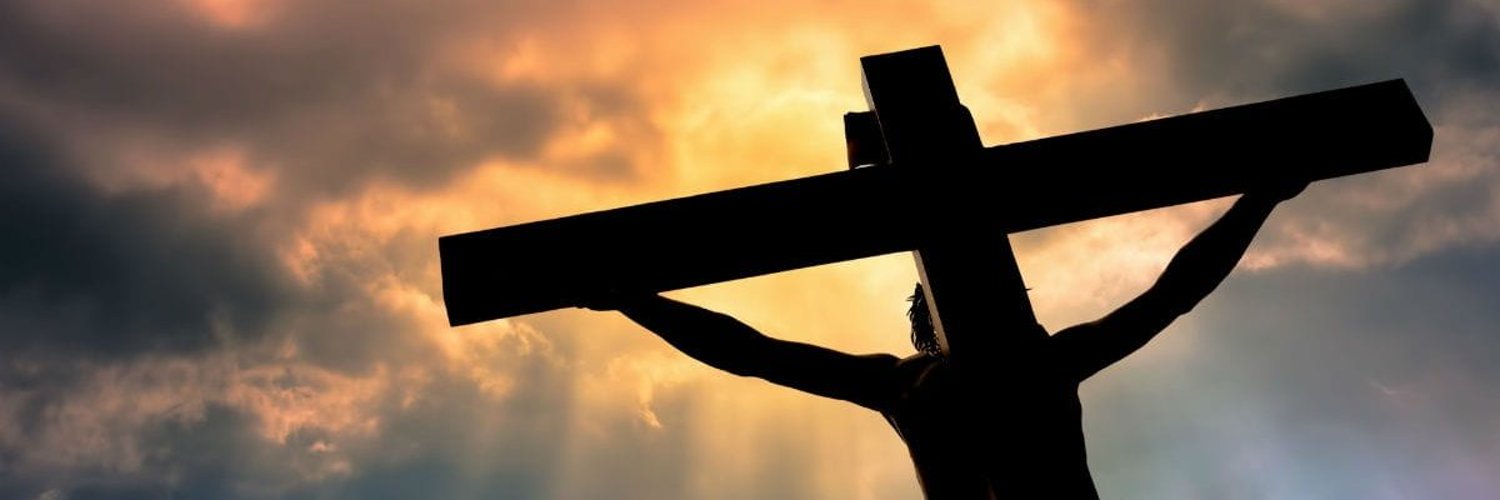

TheUnbeatenPath
@TruthForLives
The Path of the Narrow Gate that few know how to walk. 窄门之路,少有人知道如何行走 #ThePathofTheNarrowGate# #TheUnbeatenPath#
Joined April 2024
3.2K Following 20.7K Followers
To achieve Perfection, Give
Matthew 19:21 Jesus told him, "If you want to be perfect, go, sell your possessions and give to the poor, and you will have treasure in heaven. Then come, follow Me."
Man is not perfect because GOD never made them perfect. When GOD transformed Earth in Genesis from being dark, formless and void to what it is today, He never once said that it was perfect. They were good or very good at the most but never perfect. GOD could have made all things on earth like the way He created Satan, 'the seal of perfection, full of wisdom and perfect in beauty'. That means Satan is flawless. He is more beautiful than anyone we have ever seen, and his wisdom is beyond Solomon's. Satan is full of wisdom, which is complete and whole. As for Solomon, his wisdom, as in the book of 1 King, is 'exceedingly deep insight, and understanding beyond measure, like the sand on the seashore'. Even though his wisdom was greater than that of all the men of the East, greater than all the wisdom of Egypt, it is not perfect. Solomon' is nothing compared to Satan.
For whatever His divine reason is, GOD did not give anything on earth the seal of perfection. Hence, this is the sad fate of everyone, like Adam and Eve, who are prone to falling like a house of cards because of their imperfect architecture. Therefore, the saying 'to err is human' is an undeniable truth, as it is man's nature to make errors. With Satan as our tempter, we can understand how easily we can make errors and fall into his trap. He is the seal of perfection while we are not. We are like Humpty Dumpty, who sits on our imperfections and has a great fall. Even all the king's horses and all the king's men couldn't put Humpty together again.
Many do not know the consequences of our imperfections. It is the part of us that makes us fail and sin against GOD. Success will always elude us in everything we do - in relationships, careers, health and wealth. Our imperfection is our weakness, causing us to make mistake after mistake. In contrast, perfection is like our strength, and it is like a fortress, infallible. Since we are made imperfect, we will blunder our way to failure. Therefore, we see failures in systems, policies, people, families, societies and countries. The issues are countless. It is not that we do not do our best, but our best is not good enough because we cannot expect anything good out of imperfections. No matter how careful we are, we will boo-boo here and there, jeopardising our success and especially our relationship with GOD. No matter how we view our disappointments, either due to our unfavourable or uncontrollable circumstances, it is our imperfection that contributes to them. It is our imperfection that leads us to unfavourable circumstances that become uncontrollable.
As much as GOD made us imperfect, He does not want us to dwell in our imperfections from His creation. Our imperfection will cause us much pain and sorrow and distance us from GOD. The Palmist advises us to find our strength in GOD so that we will go from strength to strength and not succumb to imperfection. Jesus asks us, 'Be perfect, as your heavenly Father is perfect'. However, GOD is not leaving us to figure out our problem by ourselves. He told the Apostle Paul, "My strength is made perfect in our weakness." In other words, we can be transformed from imperfection to perfection. We need not hold on to our imperfections as our stigma because we are only human. Only when we are perfect do we not sin against GOD, and can we be like our heavenly Father in heaven, sinless. Therefore, being perfect is not a suggestion or advice but an edict. We must overcome our weaknesses of being imperfect so that we can be blessed in all that we do. However, it is much easier said than done because of what Jesus said, "For apart from Me you can do nothing".
It is not that we can do nothing. What Jesus meant is that we cannot do anything that leads to life, only those that lead to death. That is to fulfil what GOD said to Adam, "for in the day that you eat of it, you will surely die". After the fall of man, the Tree of Life is under the guard of a whirling sword of flame with stationed cherubim. No one can access it till Jesus comes as the way, the truth, and the life. Only through Jesus will we find the way of truth to life. Without Jesus, life, as the opposite of death, will evade us. Therefore, overcoming our imperfection is not by our physical determination but by GOD's spiritual anointing through our walk with Christ as we become the doers of His Word. Only then will the narrow path be revealed so that we can find the way to truth in life.
Jesus nor the Bible mentions much about being perfect, minimising its importance. In the encounter of Jesus with the rich young man, Jesus linked perfection as the criterion for eternal life. Therefore, perfection is more than not making errors or sinning but the standard of eternal life. It is a complex process of transformation to be like Jesus with the ability to fulfil the commandments of the old through Moses and the commandments of the new from Him. Jesus said, "Do not think that I have come to abolish the Law or the Prophets. I have not come to abolish them, but to fulfil them". Jesus came to fulfil the Law, and we must do likewise. If we are any short of the standard, we are not perfect.
Let us elaborate on the story of the rich young man to understand the issues. The Jewish man knew all about GOD's commandments but did not have the answer to eternal life. He was rich, implying he must have been educated and not ignorant, having a deep understanding of the GOD's Word. In doubt, he could ask from his many of his teachers. However, no one probably could give him an answer, so he approached Jesus. His question was not out of ignorance but well founded. The Torah does not have the answer because, in the Old Testament, GOD did not offer anyone eternal life. No one, regardless of who they were or their capabilities, was not qualified for eternal life.
In a larger scheme of things, since the Old Testament does not offer eternal life, this implies that fulfilling the Ten Commandments is not enough to qualify for eternal life. Obedience to GOD's Commandments, as stated in the book of Deuteronomy, only assured anyone of a blessed or abundant life, not an eternal life. Therefore, the young man lived a blessed life of wealth because he honoured GOD with his obedience to the commandments - Do not murder, do not commit adultery, do not steal, do not bear false witness, honour your father and mother, and love your neighbour as yourself.
GOD will never shortchange us because He is fair and just. If fulfilling the commandments is enough, GOD would have offered eternal life to His promises. The Psalmist said, "For the LORD God is a sun and a shield; the LORD gives grace and glory; He withholds no good thing from those who walk with integrity." Walking in obedience to His commandments is synonymous with walking with integrity before GOD. Therefore, He would not withhold the good thing of eternal life to those who honour Him. If He did withhold, it must be that eternal life requires more than obedience to the Law. It requires perfection because Heaven is not a place for imperfect sinners who trespass the Law. If we do trespass against GOD, we will be a repeat of Satan, being cast out of heaven. Therefore, perfection is a must to be in heaven.
Jesus came as the new order that is above the old to amalgamate the Old and the New as one so that we could, through Him, not only have a blessed life but also eternal life. The young man was standing at the point of inflexion between the Old Testament and the New Testament, where Jesus was the point of change. Therefore, Jesus could take his question because He is the answer. To understand the need for new order of Jesus is that the Old, through its Law, is to expose sinfulness and highlight the need for divine grace. The Law cannot save us from eternal death. Eternal life must be through Jesus Christ and nothing else, and without Him, there can be no eternal life. Therefore, Jesus has to come with the new order.
If we were to go strictly by the rules to obtain eternal life, we need to abide by the old and new commandments. When the young man asked Jesus, Jesus did not supersede the old commandments or undermine them, even when He came as the crusader of grace, the new order, and not the Law, the old order. Therefore, many have misunderstood the scripture when they say they are not under the Law but under grace. If we are no longer under Law, then why would Jesus say to the young man, "If you want to enter life, keep the commandments"? Jesus should have said, "If you want to enter life, believe in Me". Unfortunately, He did not, but that is the thinking of many. They misinterpreted the epistle of Romans, 'For sin shall not be your master, because you are not under law, but under grace.' Only when we no longer sin will sin not be our master. Then, we are not under the Law but under grace. If we persist in sin, we will still be under the Law, and grace has no favour to us. We must read the Bible like reading a legal contract, not in isolation but in totality. We cannot lift, cut, paste, or arrange the sentence as we wish to make it palatable.
Jesus was impartial and upheld the Law even with His disciples. They were not under grace because they were His disciples. Their wrongdoings were judged under the Law. For that, we can look at the difference between Peter and Judas Iscariot. Both betrayed the Son of GOD, but one was restored, and the other was not because one wrongdoing did not trespass the Law while the other did. Peter's wrongdoing was that he denied Jesus, but he did not trespass the Law to murder, commit adultery, steal, or bear false witness. He did not do Jesus any harm by walking away and denying Him. Judas indirectly murdered Jesus by going to the chief priests and agreeing to hand over Jesus in exchange for thirty pieces of silver. Judas' love for money is not a sin, but his love for money caused him to betray innocent blood. That is a sin. If grace can override the Law, and under grace, GOD takes no account of our wrong, then Judas should not be sickened with guilt but be overcome with love and forgiveness. Sad to say, the love and forgiveness did not come to fill his guilty conscience, and he was so filled with self-condemnation that he killed himself. Therefore, no one is above the Law, not even Jesus' disciples.
The rich young man is a better man than Judas, but his fate is no different. He was a visionary of spiritual foresight. No one, not even the Pharisees or the scribes, questioned Jesus about the way to eternal life except him. He had self-discipline and control, not letting his desires control his obedience to the commandments. He indeed had a highly commendable personality. The Epistle of Mark commented that Jesus looked at him and loved him. He clearly met with Jesus' approval. He fulfilled the conditions of the Old Testament, so Jesus offered him the new requirement of the New Testament. Instead of having a to-do list of 'thou shall do this' and 'thou shall not do that' as tests of his obedience, he must give. His ability to give will make him like GOD, perfect. For that, he must give his possessions to the poor and give his life to GOD by following Jesus in total surrender. Only by following Jesus and exemplifying His way will he be made perfect. Jesus is perfect, and following Him would mean we walk the way of perfection.
Unfortunately, despite his endeavour to keep all the commandments and be a better person, the rich young man did not get what he wanted: eternal life. He did not obtain eternal life, not because he was rich but because of his unwillingness to give. Jesus said to His disciples, "Truly I tell you, it is hard for a rich man to enter the kingdom of heaven. Again, I tell you, it is easier for a camel to pass through the eye of a needle than for a rich man to enter the kingdom of God." Jesus used an exaggerated figure of speech to emphasise that it is beyond any doubt that a rich man will enter the kingdom of heaven. The issue is not with the wealth but the unwillingness to give. In retrospect, no one will remain wealthy if they keep giving away their wealth. Therefore, Jesus has nothing against rich people but people who are unwilling to give and only live to enrich themselves.
If we are like the rich young man who is not contented by just life on earth, we also desire eternal life; we must do more than the young man. We must be like Peter, who said, "We have left everything to follow You". Then Jesus will reply to us saying, "Truly I tell you, in the renewal of all things when the Son of Man sits on His glorious throne, you who have followed Me will also sit on twelve thrones, judging the twelve tribes of Israel. And everyone who has left houses or brothers or sisters or father or mother or wife or children or fields for the sake of My name will receive a hundredfold and will inherit eternal life. Let us not let our unwillingness to give forfeit our eternal life. Therefore, be the transformation we want to see in ourselves, give.
Show more

0
0
0
2
0














